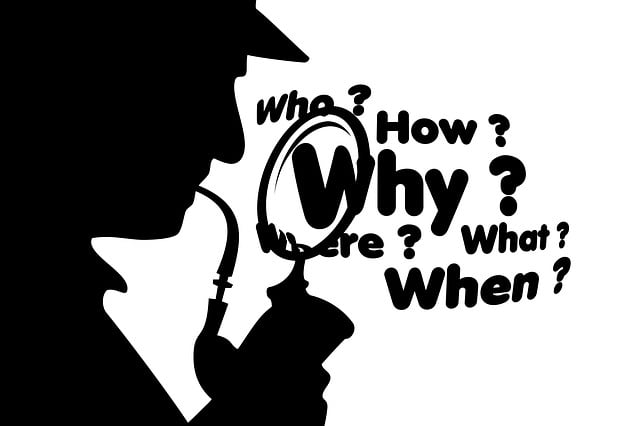Analytical writing is a critical component of any thriller novel. This blog post will discuss what analytical writing is and why it is so vital in the thriller genre. We will also provide tips for aspiring thriller writers on improving their analytical writing skills.
What is analytical writing, and why is it important in thrillers?
Analytical writing means taking a step back from the emotion of a story and looking at it objectively, noting the various elements that make it up. This might include analyzing how well the plot is constructed, the characterization, the setting, etc. It also includes examining how successful the author was in achieving their goals. In other words, it’s a way of critically assessing a work of fiction.
Analytical writing focuses on researching, analyzing, and interpreting data or evidence. The goal is to bring out the suspenseful elements of the story by using the characters’ deductions and logic to uncover secrets or identify villains. By thoroughly researching and exploring the characters’ motivations, readers are kept guessing what will happen next and can become fully immersed in the tale.
It might also mean examining the themes that a writer is exploring and how well they’re being conveyed. In short, analytical writing is all about your critical thinking about what’s on the page in front of you and figuring out why it works (or doesn’t).
Some novelists prefer to do more analytical writing during the drafting phase while others do more after the first draft is complete. However, it’s generally agreed that critical analysis is necessary to produce a well-written novel.
How can aspiring thriller writers improve their analytical writing skills?

The best way to write compelling analytical passages in a thriller is to focus on presenting facts and data while ensuring they are relevant to the storyline.
Aspiring thriller writers should aim to become experts in the research they conduct
Knowing the psychological effects of certain events or situations, understanding the motivations of different characters, and being able to create believable plot twists are all integral parts of writing a successful thriller.
It’s essential to build suspense by providing clues that help readers make connections and draw conclusions. However, writers should also be careful not to give too much away or reveal too many secrets, as this will take away from the suspenseful elements.
Finally, writers need to ensure that their passages are written in a way that makes it easy for readers to understand so they can follow along and appreciate the analytical elements of the narrative.
Other ways for thriller writers to improve analytical writing skills
An analytical essay is an argument supported by evidence, so reading many non-fiction books, especially in science and history, can improve your analytical writing skills. Learning to analyze data and information from various sources is essential for writing a thriller novel grounded in reality.
Another excellent way to learn is to read books about how to write effectively, such as The Elements of Style by William Strunk Jr. and E.B. White. Additionally, you can join a writers’ group and brainstorm with other writers about ways to improve your writing techniques.
Yet another excellent way to learn is to practice writing analytical essays and short stories. The number of body paragraphs will vary, but the structure is important, so take the time to plan each paragraph. Your critical analysis can create informative and engaging articles by providing concrete examples and explaining the logic behind their conclusions.
Common mistakes writers make when using analytical writing in thrillers:

– Giving too much away and revealing too many secrets, resulting in a lack of suspense.
– Introducing characters’ deductions and reasoning at inappropriate times or in an unclear manner.
– Not providing enough detail to enable readers to understand the content easily, being overly academic or heavy-handed with the writing.
– Not establishing a strong connection between the analytical passages and the story arc.
Additionally, writers should be careful to avoid using jargon or overly complex language that may confuse readers. By crafting thoughtful and engaging analytical passages, writers can ensure that their stories are meaningful and impactful.
The different types of analytical writing

Styles and techniques used in thriller writing can be quite varied. Writers should examine the suspense, mystery, surprise, and horror elements necessary to create a gripping tale.
There are three types of analytical writing:
Description
– Descriptive writing focuses on ‘who,’ ‘what,’ and ‘when’ questions. This type of writing involves describing something in detail, often to help the reader to understand it.
Argument
– In this type of writing, it’s essential to use your own argument and words to explain your point of view. This helps to show that you understand the issue and have thought about it critically. In this type of writing, you present a point of view and then argue for it by providing evidence.
Analysis
– In this type of writing, you take a piece of writing or some other form of information and break it down into its parts so that you can explain it more clearly. Additionally, analyzing writing can be used to detect lies or deception.
The best way to analyze someone’s writing is to look at their words and how they use them. For example, positive people tend to use more upbeat words, while those who are negative tend to use more negative words. People who lie or deceive others may use certain words more frequently.
How to use analytical writing in your thriller plot

In a thriller, analytical writing creates suspense and tension in the reader by slowly providing information that is withheld or revealed.
An analytical writing style is cold, detached, and unemotional. It is a style that favors precision over flowery language and seeks to strip away all the emotion from a narrative to get to the heart of the matter. This type of writing can be very effective because it creates a sense of detachment and coldness that can be very chilling in a thriller.
– For example, suppose the protagonist is walking through a dark alleyway and sees a shadow moving in the corner of his eye. In that case, the writer might choose to withhold the fact that someone lurks in the shadows until later in the story. This technique is used to create suspense and keep readers engaged.
– Another excellent example of an analytical writing scene in a thriller is from the movie The Bourne Identity. In this scene, Jason Bourne is in a Swiss bank trying to figure out where his money is hidden. He’s looking at a series of numbers and symbols on a screen and trying to make sense of them.
This scene is so well done because it’s suspenseful and exciting, but it’s also full of information that helps us understand what’s happening. We see Jason struggling to figure out the code, and we understand why it’s important for him to do so. We also learn about the world of espionage and how these codes work. By the end of the scene, we have a much better understanding of the mysterious world Bourne inhabits.
This scene also shows us that sometimes it takes more than just brute strength to get what you want; it can also take intelligence and patience. Jason is using his wits and knowledge to solve a problem, and it’s thrilling to watch him do so. This is the kind of nail-biting suspense the Bourne franchise is known for.
Overall, this scene helps us understand why Jason Bourne is such a compelling character. He’s resourceful, determined, and loves a good challenge. He knows what he wants and won’t stop until he gets it – a quality we can all admire in an action hero!
Examples of analytical writing from popular thrillers

Popular thrillers, science fiction, and fantasy books can be used to compare and contrast writing styles. By studying these passages, writers can better understand how to craft their pieces with clarity and precision that will leave readers in suspense until the very last page.
– In The Girl with the Dragon Tattoo, Lisbeth Salander is a highly skilled computer hacker. She was sexually assaulted as a child, and her father subsequently tried to have her committed to a psychiatric hospital. After being raped by her guardian, she was declared insane and spent four years in a secure mental hospital.
Salander is a highly independent individual who resents anyone trying to control her. She is fiercely loyal to those she cares about, making her an excellent investigator. Her analytical skills are evident when she can quickly solve complex puzzles or hack into protected systems.
– In Agatha Christie’s classic mystery And Then There Were None, the reader is taken along a thrilling journey of deception and deduction as ten strangers are invited to an island by an unknown host with dire consequences if they leave.
As the characters attempt to figure out who the killer is and why they’ve been invited to this island, readers are presented with a wealth of analytical writing. Christie uses her words to provide clues and create tension between characters as the mystery unfolds.
– In his novel The Da Vinci Code, Dan Brown writes in an analytical style as he pieces together clues to the mystery of the Holy Grail. For example, after Robert Langdon and Sophie Neveu discuss the Mona Lisa at the Louvre, Langdon reflects on her enigmatic smile: “Her smile is so mysterious, I thought. Is she happy? Sad? Content? Challenged? Smiling at something she has seen or at something she has imagined?”
– This type of writing can also be found in literary fiction, such as Ernest Hemingway’s The Old Man and the Sea. In this novel, Hemingway uses his words to create a timeless setting and explore themes of determination, courage, and the human spirit. By vividly depicting the characters’ struggles and innermost emotions, Hemingway can capture the reader’s attention and create an engaging narrative.
Final thoughts on using analytical writing in your thriller

To become an influential writer, one must understand the fundamentals of written communication. This includes a solid grasp of grammar and sentence structure, familiarity with various writing styles, and learning to be analytical. By using these principles as a basis for writing and providing helpful resources and visual examples, writers can ensure their work is as informative and engaging as possible.
Analytical writing can be a powerful tool to make your thriller exciting and engaging. Using detailed analysis of characters, settings, and plot points, you can create believable stories that draw readers in and keep them on the edge of their seats. Additionally, analytical writing allows you to explore complex themes and ideas that may go unnoticed or be glossed over.
Finally, writers must be willing to practice and take risks to become better writers. Writing is much like sports or an instrument – it requires dedication and skillful execution to succeed. Writers should never be afraid of trying something new, whether playing with different writing styles or exploring topics outside their comfort zone. With the right attitude and commitment, anyone can become an excellent writer.
Conclusion paragraph
Analytical writing can be an excellent tool for thriller writers to conclude the most important elements. It helps tell a compelling story and adds additional intrigue to the plot. Aspiring authors must remember that what might look good on paper might not work as well in real life; it’s essential to consider all your options before deciding what to use in your own story.
Experiment with different techniques, try out different points of view, and pay attention to the details that make up analytical writing. Understanding when, where, and how to employ it will help create an exciting and engaging thriller that readers can’t put down! Whether it’s keeping track of clues, taking stock of motives, or uncovering hidden agendas – analytical writing is essential in constructing that perfect thriller. Take the lead, hone your skills and explore how far you can take this unique form of storytelling – you never know how captivating your stories may become!
Thanks for reading, and good luck with your writing!
If you’re working on your first novel and are looking for more help with your writing, please check out my other articles on writing at https://ullahakanson.com/blog/
All the best,
Ulla

